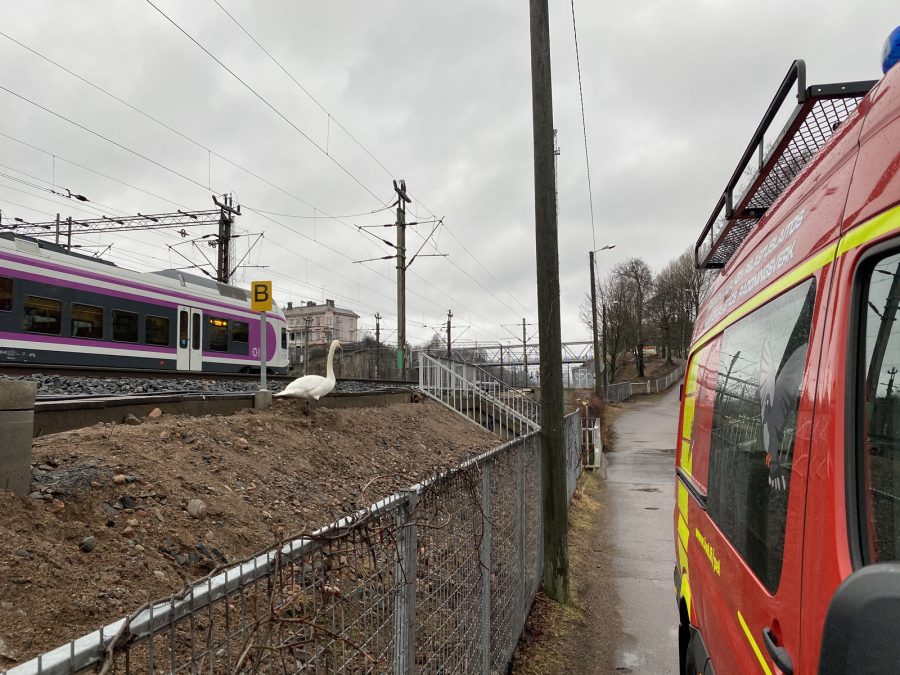Animal rescue

According to the Animal Welfare Act and the Nature Conservation Act, every effort must be made to help a wild animal which is injured or otherwise in a helpless state. A severely injured animal can only be helped by putting it out of its misery.
Instructions for animal cases
In animal-related cases, call the emergency number 112, if
- the animal causes disturbances or is a danger to people or the traffic.
- the animal needs to be rescued from a place from which it cannot get out on its own or without assistive instruments.
- there is an acute animal welfare case, for example, a severely injured animal or ongoing animal cruelty.
NB! The welfare, care and helping of pets and farmed animals is always primarily the responsibility of the owner or possessor.
Information concerning the correct use of the emergency number 112 in animal-related cases and other situations is available on the Emergency Response Centre Administration’s 112.fi website:
Based on the above-mentioned instructions, the Emergency Response Centre Administration assesses the urgency of the described situation and the type of help needed to take care of the situation. The Emergency Response Centre Administration communicates the task to the responsible authority, if this is needed according to the assessment.
The police must be contacted in animal protection cases.
How to act in situations where no authority is alerted
The Korkeasaari Zoo’s Wildlife Hospital takes in wild animals in need of help.
If the Emergency Response Centre Administration does not communicate the case to the authorities, the finder may contact the Korkeasaari Zoo’s Wildlife Hospital and primarily take the injured wild animal to the hospital during its opening hours.
The secondary option for severely injured wild animals is the Veterinary Teaching Hospital in Viikki, which is open 24 hours a day. The societies for animal protection in the Metropolitan Area provide animal-related advice when possible.
According to the Animal Welfare Act, inflicting undue pain and distress on animals is prohibited. You can also put down a severely injured small animal (less than 3 kg) yourself. An emergency killing can be carried out, for example, by a hard blow to the head. The animal can be sealed in a plastic bag and disposed of with the mixed waste.
Pay attention to the hygiene
Always maintain good hygiene when handling animals to prevent the transmission of zoonotic diseases. Avoid touching dead or sick animals and always use gloves and a respiration protector when handling them. To prevent infections, wash your hands with water and soap after handling animals. Use alcohol-based hand disinfectant if necessary. People who have been in contact with bats must exercise particular caution due to the rabies risk. Due to the bird flu risk, if you encounter many sick or dead birds in the same place, please contact the above-mentioned institutions and avoid touching the birds.
- Toimenpideohje ihmisen lintuinfluenssatartuntojen torjumiseksi (only in Finnish)
- Lintuinfluenssa (only in Finnish)